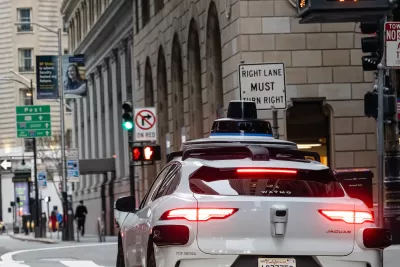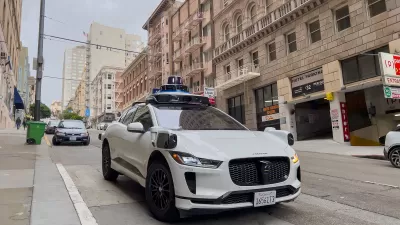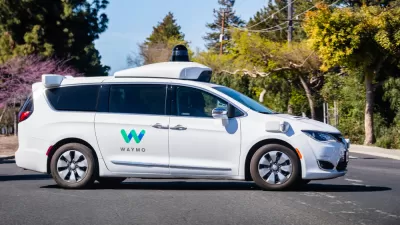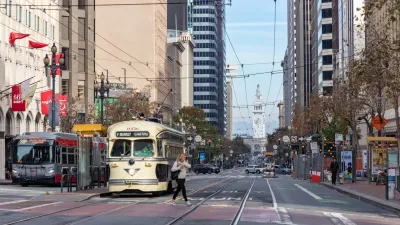Waymo’s autonomous vehicles can begin picking up passengers in Los Angeles and San Francisco in spite of opposition from local officials.

Despite local concerns and recent federal investigations into the safety of autonomous cars, the Consumer Protection and Enforcement Division of the California Public Utilities Commission gave Waymo the go-ahead to operate autonomous taxis in Los Angeles and San Francisco.
In an article in Smart Cities Dive, Dan Zukowski notes that ‘Waymo, which already operates paid driverless robotaxi service in San Francisco and Phoenix, can begin service in the additional areas immediately following the CPUC’s determination that local officials’ objections do “not state proper grounds for protest.’” Local officials say they want more decision-making power in how and when robotaxis are deployed in their cities. In a letter to the CPUS, Los Angeles Mayor Karen Bass wrote, “local jurisdictions like Los Angeles have had little to no input in AV deployment and are already seeing significant harm and disruption.”
While, according to the company, the crash rate for Waymo vehicles is 85 percent lower than human-operated vehicles, multiple high-profile crashes have drawn concern from city leaders and federal regulators.
Last fall, another autonomous car manufacturer, Cruise, suspended its driverless operations as part of an effort to boost public trust.
FULL STORY: Robotaxi expansion approved in California over local objections

Alabama: Trump Terminates Settlements for Black Communities Harmed By Raw Sewage
Trump deemed the landmark civil rights agreement “illegal DEI and environmental justice policy.”

Planetizen Federal Action Tracker
A weekly monitor of how Trump’s orders and actions are impacting planners and planning in America.

The 120 Year Old Tiny Home Villages That Sheltered San Francisco’s Earthquake Refugees
More than a century ago, San Francisco mobilized to house thousands of residents displaced by the 1906 earthquake. Could their strategy offer a model for the present?

In Both Crashes and Crime, Public Transportation is Far Safer than Driving
Contrary to popular assumptions, public transportation has far lower crash and crime rates than automobile travel. For safer communities, improve and encourage transit travel.

Report: Zoning Reforms Should Complement Nashville’s Ambitious Transit Plan
Without reform, restrictive zoning codes will limit the impact of the city’s planned transit expansion and could exclude some of the residents who depend on transit the most.

Judge Orders Release of Frozen IRA, IIJA Funding
The decision is a victory for environmental groups who charged that freezing funds for critical infrastructure and disaster response programs caused “real and irreparable harm” to communities.
Urban Design for Planners 1: Software Tools
This six-course series explores essential urban design concepts using open source software and equips planners with the tools they need to participate fully in the urban design process.
Planning for Universal Design
Learn the tools for implementing Universal Design in planning regulations.
Clanton & Associates, Inc.
Jessamine County Fiscal Court
Institute for Housing and Urban Development Studies (IHS)
City of Grandview
Harvard GSD Executive Education
Toledo-Lucas County Plan Commissions
Salt Lake City
NYU Wagner Graduate School of Public Service





























